If you were a teenager in Britain in the late 70s, the world changed the day you first heard the Sex Pistols. I’ve talked to countless British musicians who swear their musical cherry was popped the first time they heard “Anarchy In The U.K.”
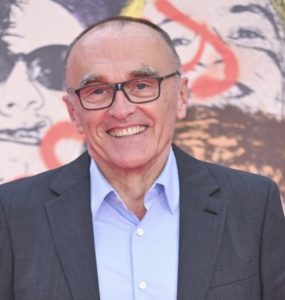
While Danny Boyle went the film route, ultimately directing the cultural phenomenon Trainspotting and taking home the Oscar for Slumdog Millionaire, he is still one of those who abides by the belief that the Sex Pistols were god in the U.K. So he created a new limited series, Pistol, for FX, now streaming on Hulu.
Boyle spoke to us about why he chose to make a limited series about a band that lasted three years before imploding 44 years ago, and which current performers, series, books and films influenced him as he created the biopic.
“Although [the Sex Pistols] only did the one album, it did shift everything,” Boyle explains. “It introduced punk, in an immediate sense, to a massive and wide audience through its notoriety and through their ability to generate conflict and press coverage in an outraged press.”
In fact, their 1977 song “God Save The Queen” (which included the lyrics “She ain’t no human being”) was banned from BBC radio, which decried it as an example of “gross bad taste.”
But Boyle sees the band as more than just incendiary for the sake of it. “I think they also shifted things more commonly as well. I don’t think we ever looked back,” he says. “And they weren’t just rude and provocative and all those things. They actually had stuff to back it up with, and the stuff they backed it up with was a philosophy that ‘you can do this as well.’ That was why, even though they could play, they actually went by the misnomer that they couldn’t play. And in fact, they’re a fantastic band, and always have been when you listen back to the recordings. But the calling card was, ‘We can’t play, and you don’t have to either. All you have to do is have something to say.’ And that was the difference, and I think that energized and mobilized a generation.”
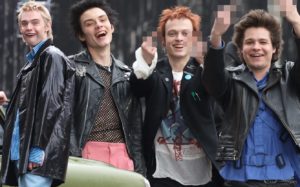
Boyle now realizes that the band’s DIY punk rock ethos is a huge influence on his filmmaking. “I’m the same age as them. I’m from a very similar background to them. And I remember being filled with something that I realize now, doing the show, I’ve carried my whole life and career, which is a kind of energy that is yours,” he says. “And nobody can tell you you’re unqualified to do things if you’ve got the aptitude to approach it.
“It was liberating to those of us who felt like we had something to say as well, and didn’t feel like we had a place in which to say it. They say, ‘you have got a place. It’s right there with you now.’ And I thought it was extraordinary doing it, realizing that about them, really.”
We spoke with Boyle about the music, films, shows, and performances he took in while creating Pistol, and some of the influences that have shaped him.
Q: Were there music-related movies that stood out to you as you worked on Pistol?
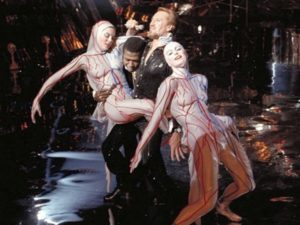
Danny Boyle: It’s a slight tangent, but it’s All That Jazz [Bob] Fosse. I just thought the risk taking in that was just magnificent.
And this is closer to home. We have a couple of filmmakers here, one of whom you’ll know ’cause he’s an important part of this movement, which is Julien Temple, who is a brilliant documentary filmmaker. Drama doesn’t suit him as much, but he’s a true innovator in terms of documentary. And Adam Curtis, who’s a documentary filmmaker here. Their use of archive you can see in Julien’s Filth and The Fury, about the Sex Pistols, that’s the obvious one.
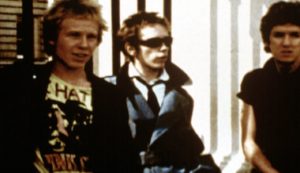
We used some footage from it actually for our archive ’cause he found it. [Temple and Curtis] were filmmakers who were enormously influential on me, in terms of how to manipulate the archive, how to use archive as a fluid thing, not as a reference point to say, ‘That’s what that was like then.’ Our musicians, Rick and Carl from Underworld, who did all the music and everything like that, they have this wonderful expression: ‘The music is the liquid architecture of our lives.’
For those of us who are obsessed with music and have lived our whole life doing with it, I love that phrase. I thought of the archive as that — it’s just liquid architecture flowing around these characters — and if you can achieve that, if you can get that, then you can cut to anything to help people understand something.
Those were the closest recognizable influences. You’re right, everything influences you and you’ll kinda grow up, obsessed with this stuff. So you’re not quite sure where it eventually will come from. You plead independence from direct sources, but I’m sure you’re being influenced the whole time by stuff you absorbed. But those three in particular, and All That Jazz, I always reference just ’cause it’s risk taking.”
Are there other films or stories or series or anthologies that really stand out to you?
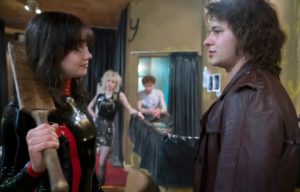
Boyle: There’s one particular reference which is Steve [Jones] and Chrissie [Hynde] play the blues together at one point, and it’s cut with them making love. And that’s a tribute to Nick Roeg, he obviously used Mick Jagger, David Bowie, he loved the world of the pop stars in his work. So that was a direct tribute to him.
In terms of TV series, I don’t know. It’s such a new world, I’m not aware of any that I know of really, that I can honestly quote ’cause it’s much younger, modern streaming, I guess. So, no I don’t know, but I hope to pick up some lessons from it.
It’s quite interesting, I read this extraordinary quote by John Boorman — he’s a wonderful director – and he said, ‘The big difference is that when you’re making a film, you spend the whole film searching for your ending. And then you make a TV series, that’s the one thing you want to avoid.’ John Boorman is brilliant and it’s true. You just want to keep it going.
Is there stuff that you’ve been watching of late and that you’ve been enjoying as well?
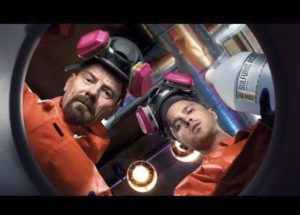
Boyle: So when we got our lockdown, I finally got a chance to watch Breaking Bad, which is pretty extraordinary. I have to say that the sustained quality and imagination of that was truly wonderful. And I read Middlemarch, which is a book I’d never read. It’s meant to be the greatest novel ever written. I remember doing those two things in lockdown, and I think COVID has literally shifted the way that we consume things, for sure.
Although we’re doing publicity and having premieres for Pistol, we’re using what feels like an old out-to-date model, which is the cinema launch. I don’t think it works out how to launch television, ’cause there isn’t the weekend that you’re heading for, like you would with a cinema launch, to try and generate big numbers and then word of mouth. The role model for how you do cinema, I don’t know how they’ve done it with television.
But for us, it’s an opportunity to tell a story that feels really important to us. Whether anybody else will be interested, I have no idea.
What was the last concert you saw?
Boyle: Well, that was one of the most extraordinary things, ’cause we began this project at the beginning of lock down. So we taught the band to play. When the extras came in, in the scenes in the concert seats, this was the first live band they’d seen in a year. There was no live music in London at all. They were being paid a hundred quid a week, whatever, hundred quid a day, as extras, and they were getting to see a live band, which turned out to be pretty good.
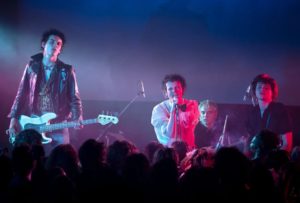
So we treated them like concerts, they had to play. We didn’t let the cameras dictate it. They played the songs, and they played multiple songs. And they could really do it and they could improvise as well. ‘Cause [Underworld’s] Rick [Smith] and Karl [Hyde], I wondered what they taught them. He said, “Teaching them instruments is easy. Teaching them how to be a band is different.” The mentality of a band is different.
So that’s the last one I went to see. Before that I can’t remember. Who did I go and see? Oh my God, Ed Sheeran. Ed Sheeran’s the last one I saw play, in one of his mega shows, you know? Because we were doing the show that had him in it. We did this film, Yesterday, about The Beatles disappearing. So we did all this coverage of Ed, and I saw him play a few times. Yeah, and that was just before lockdown. So, Ed Sheeran. Very impressive live, I have to say.
Stream All That Jazz on the Roku Channel
Check out Julien Temples The Filth and the Fury on Vudu (Also on Amazon)
Watch all five seasons of Breaking Bad on Netflix (Also on Vudu)


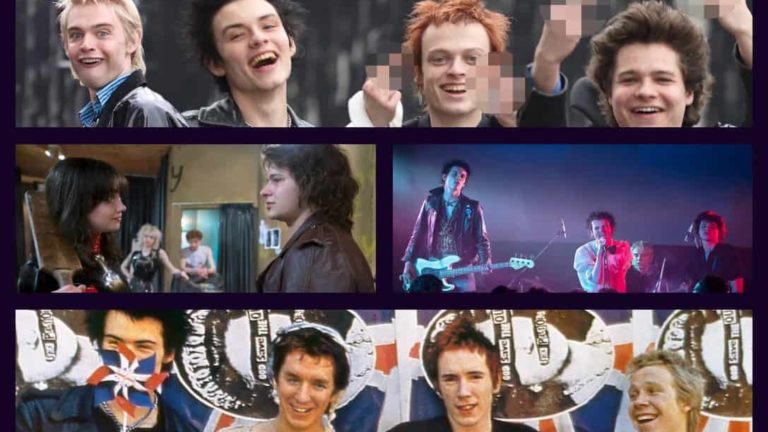
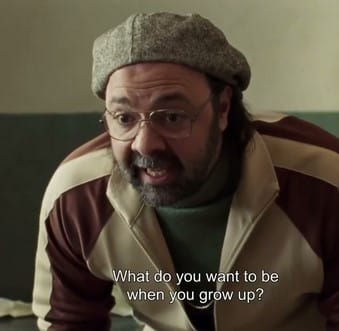
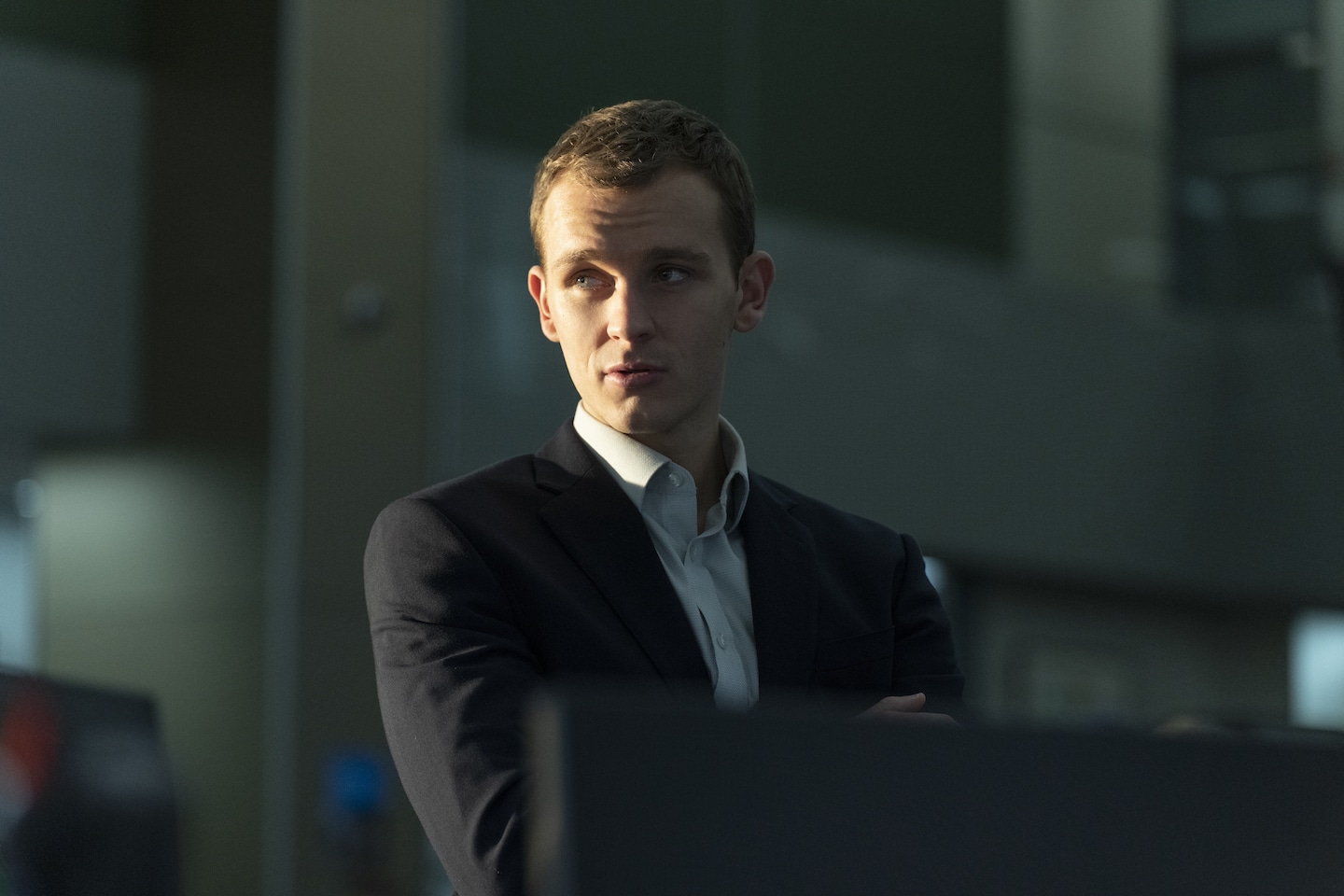
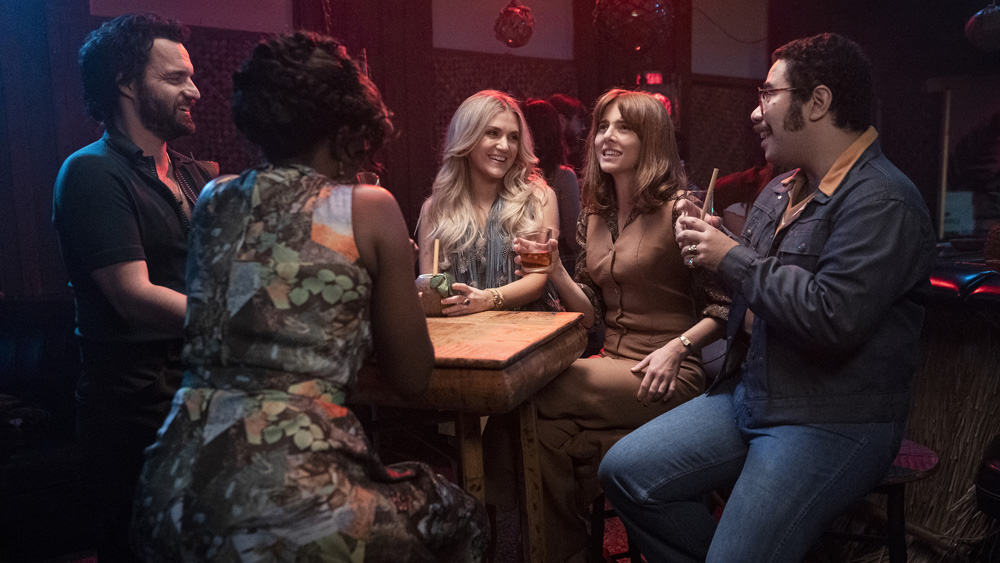
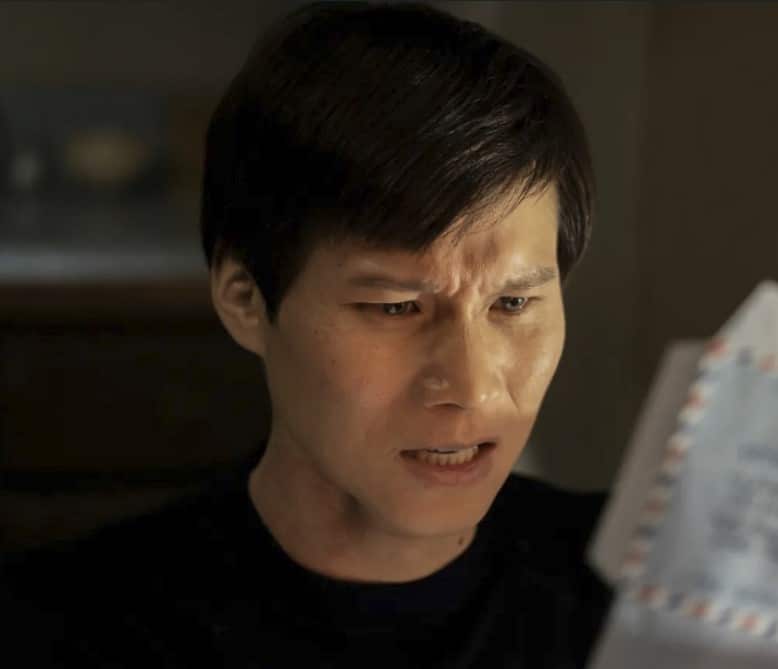
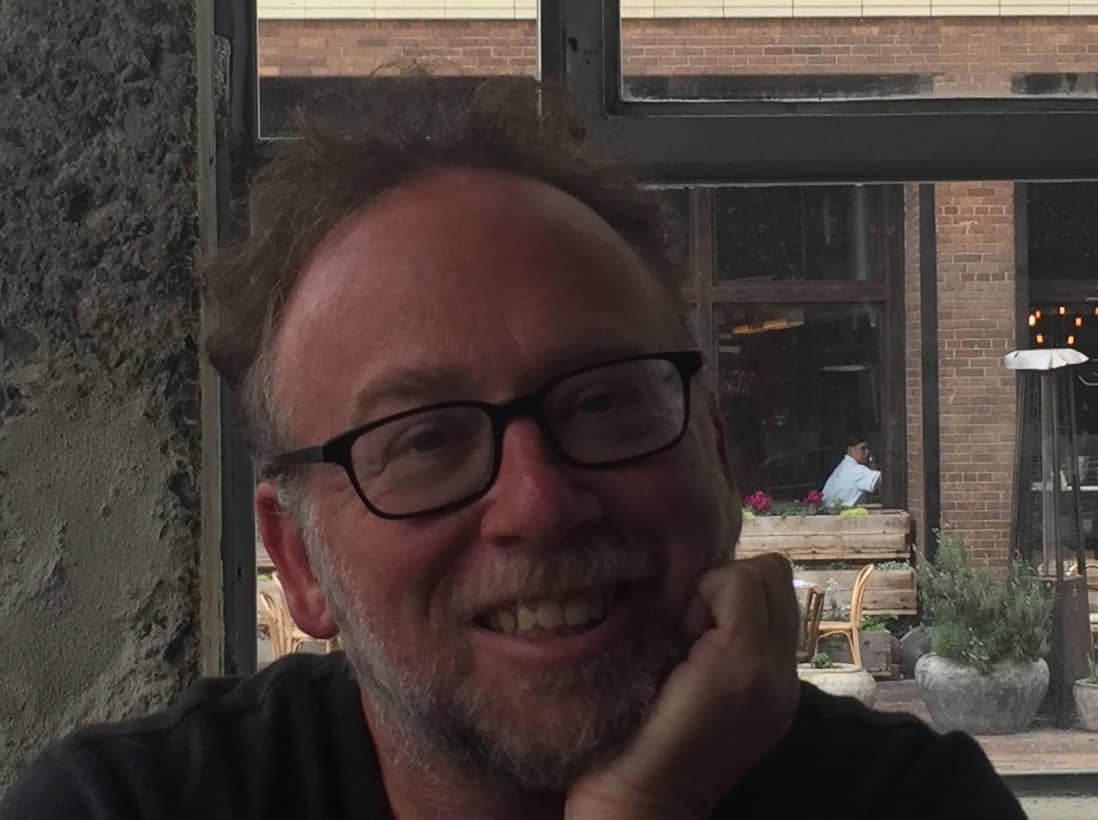

Start a watercooler conversation: